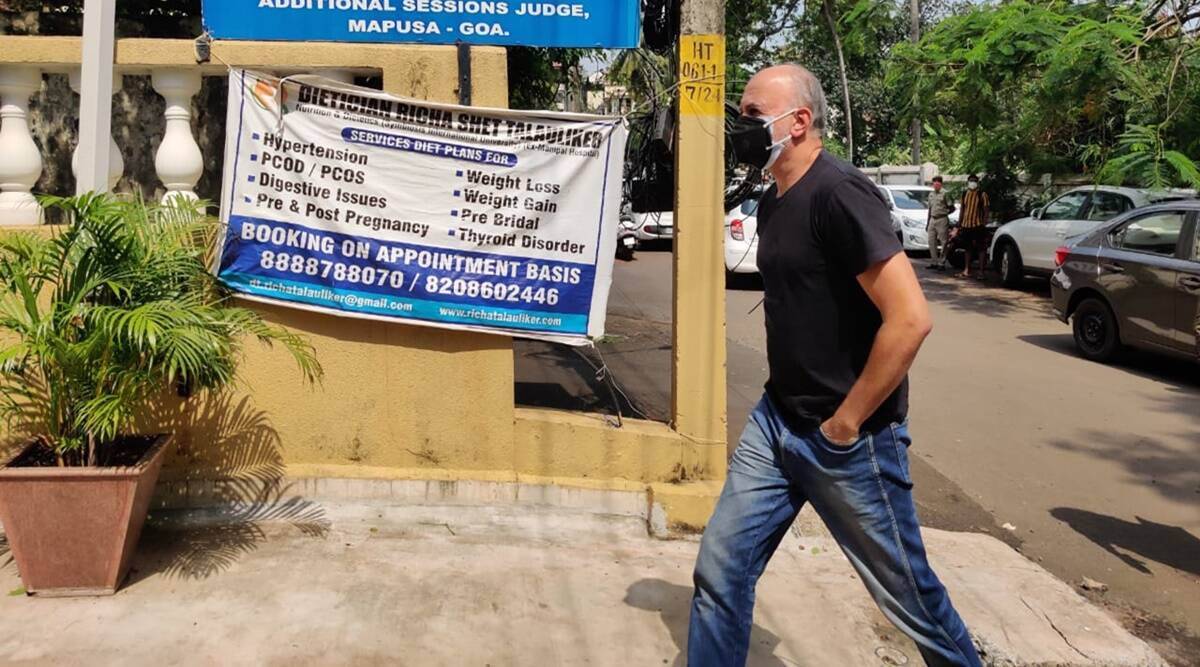Rape case appeal: Bombay HC rejects Tarun Tejpal’s plea for in-camera hearing
A division bench of Justice Revati Mohite Dere and Justice M S Jawalkar said that the reasons for their decision rejecting Tejpal’s application will be recorded separately.
 Tarun Tejpal (file photo)
Tarun Tejpal (file photo)The High Court of Bombay at Goa on Wednesday rejected an application filed by the former editor of Tehelka, Tarun Tejpal, seeking in-camera hearing of the proceedings in the appeal filed by the Goa government against his acquittal in a 2013 case of alleged rape and sexual assault.
A division bench of Justice Revati Mohite Dere and Justice M S Jawalkar said that the reasons for their decision rejecting Tejpal’s application will be recorded separately. Tejpal’s counsel Amit Desai told the court that he had instructions to challenge the decision of the High Court in the Supreme Court.
In August, Tejpal had filed an application stating that the proceedings before the High Court be conducted in-camera “so as to obviate any prejudice either to the prosecutrix (woman)” or the present respondent (Tejpal) as the adjudication of the present matter shall also entail reading of evidence read before the Ld trial court.”
Arguing for Tejpal on Wednesday, Desai told the court that the protection under Section 327 of the Criminal Procedure Code (CrPC) would protect both the parties – Tejpal, the accused in the case and also the woman. Under Section 327 of the CrPC, a judge can decide to hold proceedings in-camera based on the nature and sensitivity of the case. “There are sons of the country and daughters of the country. Both have to be protected,” Desai said.
Justice Dere, however, observed, “You (Tejpal) are not protecting the victim, the statute protects the victim, the court protects the victim… it is not your concession,” She also said that Section 228 of the IPC entails punishment for publication of the name of the victim.
The Goa government’s prosecution team led by Solicitor General Tushar Mehta and including Advocate General Devidas Pangam and Additional public prosecutor Pravin Faldesai, told the court that the victim was ‘humiliated’’ during the trial when in fact, Section 327 was to protect the victim and the state.
“After naming and shaming the victim, this vehemence (of the accused) is surprising,” Mehta said.
Desai also said that reputation was a fundamental right. “Both in terms of reputation and privacy, the duty to show that this need not be protected, is a heavy burden.”
He argued against keeping the proceedings open to the public and the media. “We don’t need publication on a daily basis to assist us,” Desai said. He said that the proceedings before the trial court were also held in-camera. Desai also said that making the proceedings in-camera would not prejudice the Goa government in any way.
The court said that it had already asked the parties not to read out the evidence in open court and pointed out paragraph numbers for the court to read. Mehta also told Desai, “I will not name and shame your client.”
Desai, however, said that this may restrain him from making certain submissions fearing that it may be published and that, he said, would come in the way of his right to defend himself.
Mehta told the court that section 353 of the CrPC states that every judgment of the trial court has to be pronounced in open court. “The law does not say that the judgment in the case should also be in-camera. Everyone knows the result of the trial. The judgment and the evidence in the case were in public domain. The umbrella of Section 327 is over once the judgment is pronounced under (Section) 353,” Mehta said.
Mehta also said that after the judgment was pronounced and the appeal was filed, the accused also had a window to speak about the matter. “Thereafter, the accused cannot say that I have done what I had to do but now it cannot come in public domain,” Mehta said. The Goa government also submitted that the High Court was an appellate court and every such case was heard in the open court in the High Court.
Desai also said that protecting Tejpal in the matter was equally important as men accused in cases of sexual assault also face stigma. “I (Tejpal) have been acquitted by an experienced, senior sessions judge. A lady judge has delivered the judgment. The presumption of my innocence is now fortified,” he said.
Pangam, however, told the court, “The judge is so experienced that she has named the victim in the judgment.” Desai said, “Let us not criticise judges.” “Let us also not praise (judges) unnecessarily,” Pangam retorted.
The court will hear the Goa government’s application seeking leave to appeal against the acquittal of Tejpal in the case of rape and sexual assault. Tejpal was accused of sexually assaulting a then colleague in an elevator of a hotel in Goa on November 7, 2013 and November 8, 2013. On May 21, Additional Sessions Judge Kshama Joshi acquitted him of all charges.







